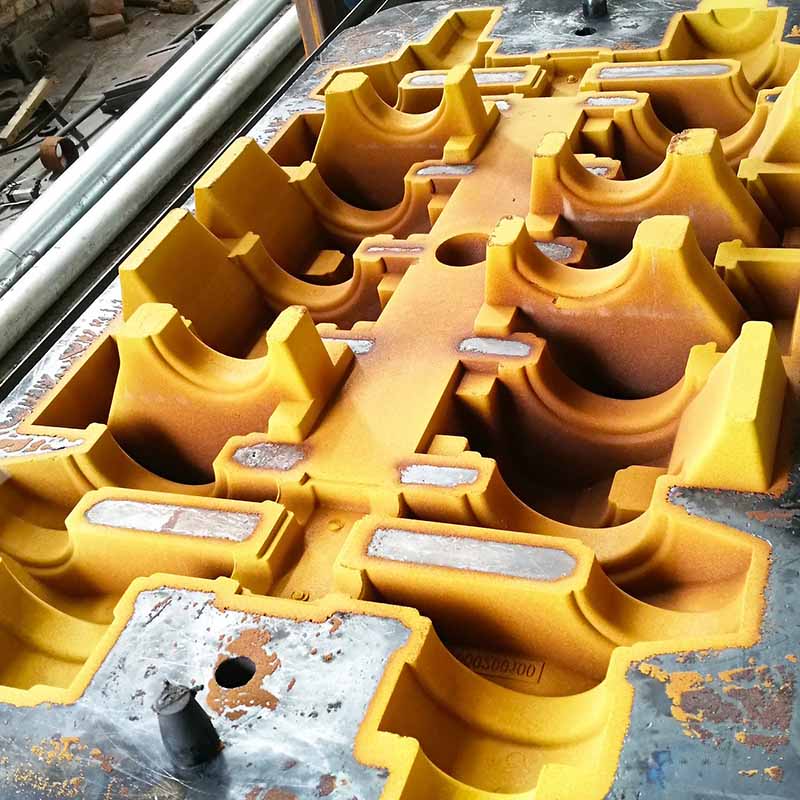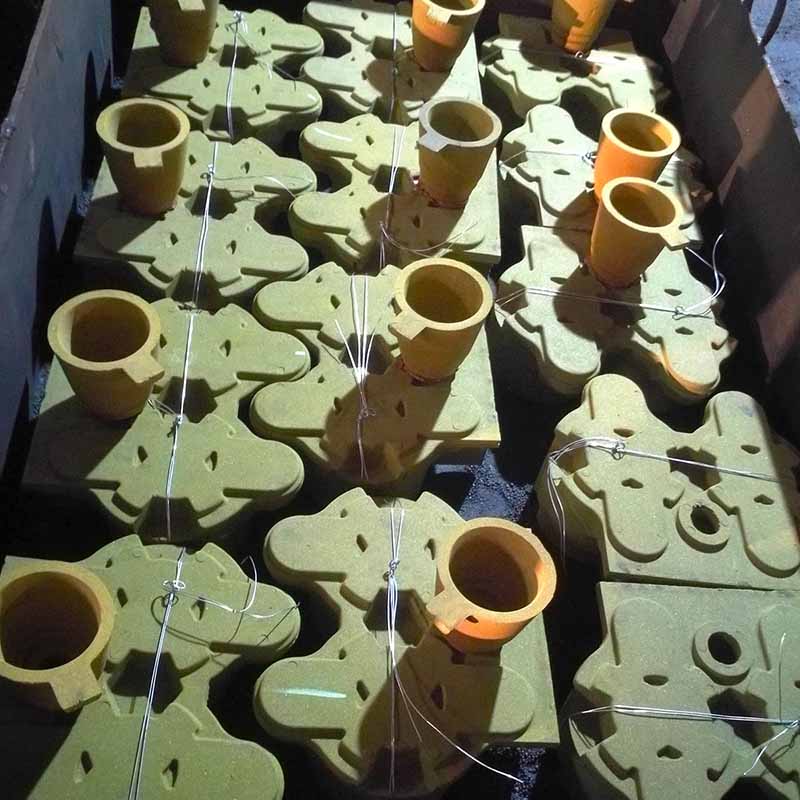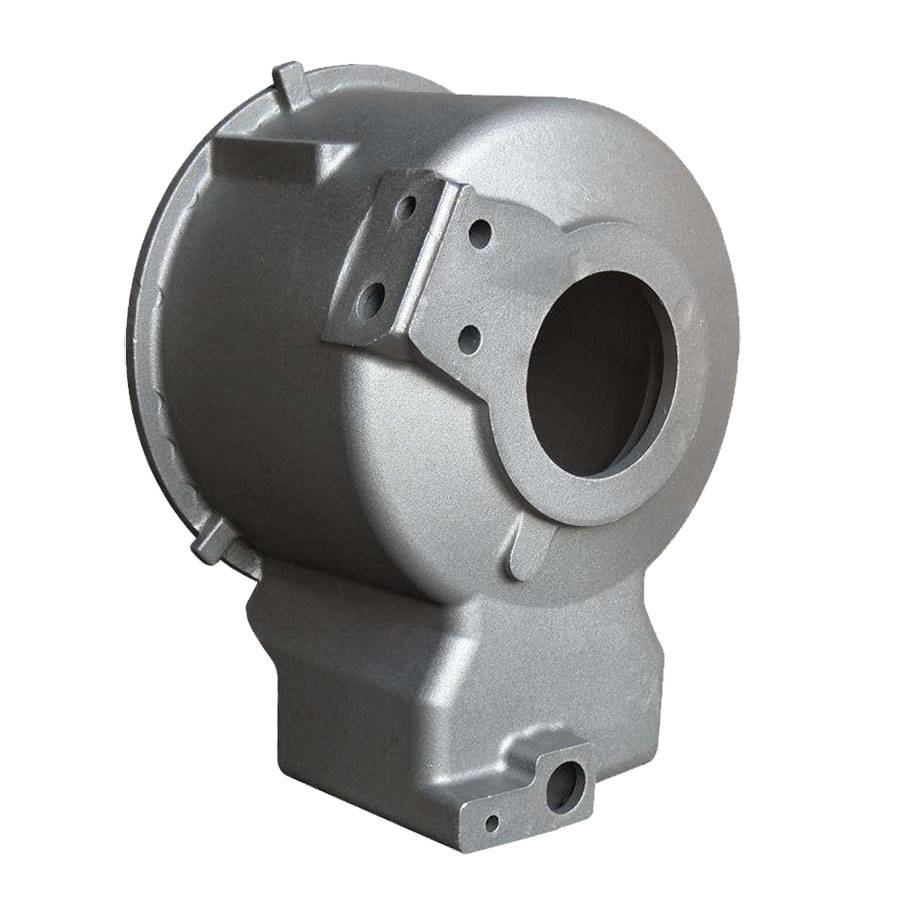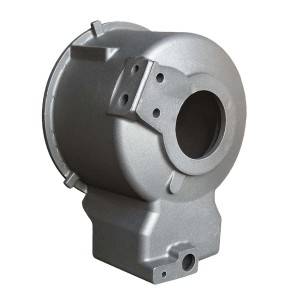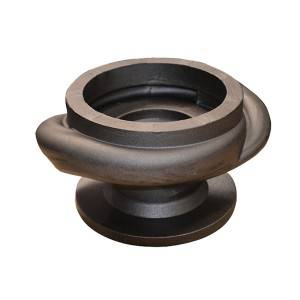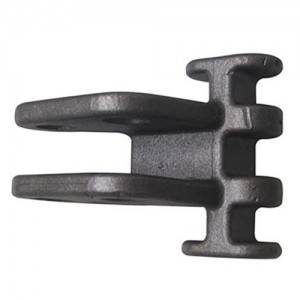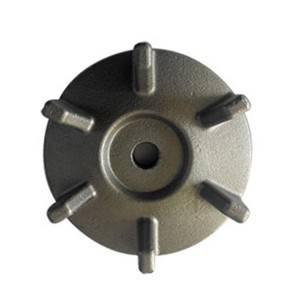During shell mold casting, prior to making the mould and core, the coated sand have been covered with a solid resin film on the surface of the sand particles. The coated sand is also called shell (core) sand. It is to mechanically mix powdered thermosetting phenolic tree with raw sand and solidified to be hard and strong when heated. It has been developed into coated sand by using thermoplastic phenolic resin plus latent curing agent (such as urotropine) and lubricant (such as calcium stearate) through a certain coating process. When the coated sand is heated, the resin coated on the surface of the sand particles melts. The molten resin rapidly transforms from a linear structure to an infusible body structure so that the coated sand is solidified and formed. In addition to the general dry granular form of coated sand, there are also wet and viscous coated sand.
Resin sand coated sand shell casting parts has the following characteristics:
1) It has suitable strength performance. It can meet the requirements for high-strength shell core sand, medium-strength hot-box sand, and low-strength non-ferrous alloy sand.
2) Excellent fluidity, good moldability of the sand core and clear outline, which can produce the most complex sand cores, such as water jacket sand cores such as cylinder heads and machine bodies.
3) The surface quality of the sand core is good, compact and not loose. Even if less or no coating is applied, better surface quality of castings can be obtained. The dimensional accuracy of castings can reach CT7-CT8, and the surface roughness Ra can reach 6.3-12.5μm.
4) Good collapsibility, which is conducive to casting cleaning and improving product performance
5) The sand core is not easy to absorb moisture, and the strength of long-term storage is not easy to decrease, which is conducive to storage, transportation and use
Manufacturing processes of coated sand mold (core) making for shell moulding casting:
1. The basic process of manufacturing coated sand mold (core) is: flip or blow sand→crust→sand discharge→harden→core (mold) and so on.
1) Turn over or blow sand. That is, the coated sand is poured on the shell mold or blown into the core box to manufacture the shell or shell core.
2) Encrustation. The thickness of the shell layer is controlled by adjusting the heating temperature and holding time.
3) Sand discharge. Tilt the mold and the core box to make the unreacted coated sand fall from the heated shell surface, and collect it for reuse. In order to make it easier to remove the unmelted coated sand, if necessary, a mechanical method of shaking back and forth can be adopted.
4) Hardening. In the heating state, in order to make the thickness of the shell more uniform, make it contact with the surface of the heated shell within a certain period of time to further harden.
5) Take the core. Take the hardened shell shape and shell core out of the mold and core box.
